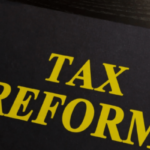Licensed Bureau De Change (BDC) operators across Nigeria have said they are finding it difficult to remain in business following the Central Bank of Nigeria’s (CBN) suspension of dollar allocation to the sector.
Many of them say they are struggling to meet basic expenses such as staff salaries, rent, licences, and other regulatory costs.
Read also: CBN cuts MPR to 27% in first rate easing in five years to attract investors
BDCs battle for survival
BDC operators say their current situation has been made worse by their inability to access foreign exchange from the official window. According to them, the suspension of dollar sales by the CBN has left most of their members with little or no income, forcing many to scale down operations.
They explained that survival now depends on unsteady inflows from walk-in customers who sell small amounts of foreign currency, a practice that is neither regular nor reliable.
Many operators also face uncertainty as they continue to navigate recapitalisation and licence renewal processes, amid what they describe as a dislocated retail forex market.
Read also: Providus, Unity Bank shareholders approve merger
The operators have continued to call for increased participation in the foreign exchange market to support the success of the CBN’s policies and improve liquidity in the retail segment.
This appeal followed the June 2023 unification of Nigeria’s foreign exchange market, which merged all forex windows into one in a bid to improve liquidity and stability.
Read also: Champion Breweries plans N58bn capital raise for Bullet brand acquisition
Things have been extremely tough
In an interview with Nairametrics, a BDC operator, Abubakar Ardo, said that most traders are “barely managing to stay in business” as a result of the continued suspension of forex sales.
He said, “Honestly, things have been extremely tough for us lately. Most operators are just managing to stay afloat. Since the CBN stopped selling forex directly to us, our operations have been badly affected. We used to depend largely on the official window to get foreign exchange at regulated rates, but that avenue has been shut for a long time.”
Ardo added that customers’ demand for physical forex transactions has dropped significantly as more people now prefer to use online platforms or International Money Transfer Operators (IMTOs).
“Right now, survival depends mostly on what we can get from walk-in customers — people coming in to sell small amounts of dollars, pounds, or euros. But that’s not structured or steady. Sometimes, you can go days without a single serious transaction,” he said.
He added, “The market is very dislocated, and demand has dropped sharply because most people now prefer to do transfers or use online platforms or IMTOs instead of physical cash exchanges. This may be good for the naira, but sincerely, many of us are suffering.”
Ardo said operators are now focused on staying compliant and keeping their licences active while hoping that the CBN re-integrates them into the official market.
Read also: Providus–Unity merger positions bank for NGX Debut
Our operations are near extinction
The President of the Association of Bureau De Change Operators of Nigeria (ABCON), Aminu Gwadebe, confirmed that the majority of members are struggling to remain in operation.
He said, “The market is stable. As patriotic citizens, we align with policies that strengthen our sovereignty, which is the naira, and commend both the regulatory and fiscal authorities on the naira stability and elimination of the exchange rate spikes.
“Our operations are currently near extinction, with the majority of our members struggling to meet up with overhead expenses. There is an ongoing positive collaboration between the CBN and the operators on the return of active participation of the BDCs in the retail end of the FX market.”
Gwadebe added that the BDCs “remained the most potent tool of the CBN’s foreign exchange policy transmission mechanism,” but that many members are now “comatose” due to their dependence on the official foreign exchange market, which is currently inaccessible.
Read also: Africa Capital Alliance completes $299m exit from Aradel Holdings
Background to the crisis
The CBN had in July 2021 stopped selling forex to BDCs, accusing them of facilitating illegal financial flows and engaging in money laundering. However, in February 2024, the bank resumed limited forex sales to the BDCs after revoking the licences of over 4,000 operators for regulatory breaches.
That resumption was short-lived, as the CBN again halted dollar sales to the traders, citing the need for structural reforms in the retail forex market.
Since then, the operators have continued to press for their inclusion in the official market and access to foreign exchange through commercial banks and IMTOs. They have also called for the reinstatement of the 2015 policy guidelines, which allowed BDCs to access forex from banks’ autonomous windows and act as agents for diaspora remittances.
While discussions with the apex bank continue, many operators say they remain uncertain about the future of their businesses in Nigeria’s evolving forex landscape.










